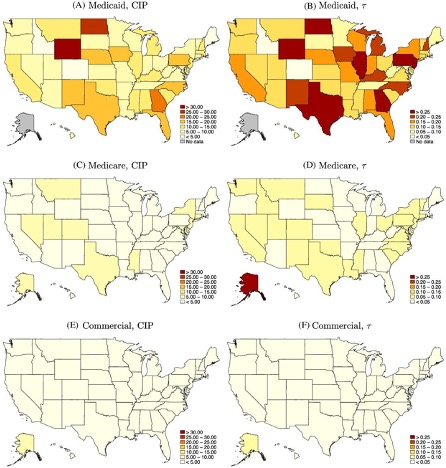
[ad_1]
One purpose is that reimbursement charges for Medicaid are decrease than for Medicare or business insurance coverage. One other (usually ignored) issue, nevertheless, is doctor’s danger of cost denials and the executive trouble they face making an attempt to get reimbursed by Medicaid. A paper by Dunn et al. (2024)–cleverly named “A Denial a Day Retains the Physician Away“–reveals that reimbursement denials by Medicaid are a lot increased than for Medicare or business insurance coverage.
Who bears the results of administrative issues in well being care? We use information on repeated interactions between a big pattern of U.S. physicians and many alternative insurers to doc the complexity of well being care billing, and estimate its financial prices for medical doctors and penalties for sufferers. Observing the back-and-forth sequences of declare denials and resubmissions for previous visits, we will estimate physicians’ prices of haggling with insurers to gather funds. Combining these prices with the income by no means collected, we estimate that physicians lose 18% of Medicaid income to billing issues, in contrast with 4.7% for Medicare and a couple of.4% for business insurers. Figuring out off of doctor movers and practices that span state boundaries, we discover that physicians reply to billing issues by refusing to just accept Medicaid sufferers in states with extra extreme billing hurdles. These hurdles are quantitatively simply as vital as cost charges for explaining variation in physicians’ willingness to deal with Medicaid sufferers. We conclude that administrative frictions have first-order prices for medical doctors, sufferers, and equality of entry to well being care. We quantify the potential financial positive factors—when it comes to decreased public spending or elevated entry to physicians—if these frictions may very well be decreased and discover them to be sizable.

The proper column reveals the imply CIP as a share of go to worth by state and payer.“
Economist Writing Each Day has a pleasant abstract of the difficulty.
[ad_2]